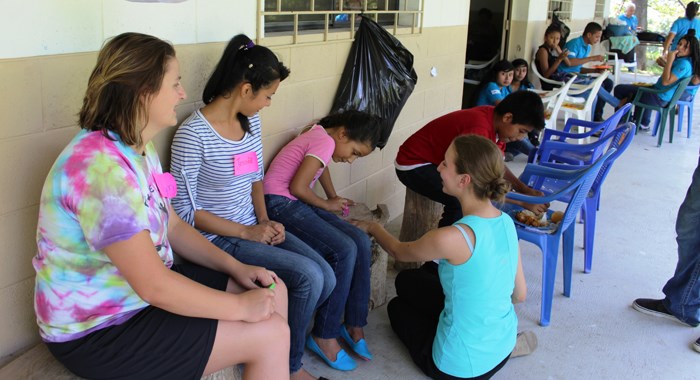Going to El Salvador was a life-changing trip for Kaitlyn Kitzan, a Sacred Heart High School student who was selected to be part of the inaugural Saskatchewan Council for International Cooperation Global Citizen Youth Leadership Program.
“When I came home, it was water consumption, like, how much water am I going to use,” she explained.
In El Salvador, although she said the family she was staying with had a small, but nice home, there was no indoor plumbing. Using an outhouse and showering with a bucket took some getting used to.
More so than the physical challenges, however, was the social differences.
“It’s appreciating all the privileges we have here in Canada and really questioning others, hoping to make others aware about the privilege of having education because the two girls in my billet family didn’t have the opportunity to always attend school because they had family chores and stuff.”
That was one of vast difference from her Canadian experience and one that inspired her to work toward empowering women.
“The women think that they have to listen to the men and to do what they say and that’s huge because I want them to have rights and the women’s rights were definitely lacking where we were,” she said.
El Salvadorans, perhaps, have more pressing issues, which Kitzan was well aware of.
“There’s the government and how the government is working against their people,” she explained. “The police are kind of in the middle, sometimes they’re with the people, but sometimes they’re with the government.
“You could feel the tension, especially with the gangs. El Salvador is known for their gang country and police fear the gangs so they won’t stop the gangs, which is very scary because you have nobody fighting against the gangs, so they kind of control the country.”
That came crashing home to Kitzan when she found out two weeks after returning to Yorkton that two of her colleagues from the local El Salvador international development organization they were working with there were killed by gangs.
“That hurt a lot,” she said.
Back on the home front, Kitzan and the other participants have been travelling around sharing a documentary and their experiences with other students, including visiting the site of La Matanza where 50,000 indigenous people were massacred in 1932.
“It took me about two months to come to the realization of what I saw and it’s definitely an emotional, intense trip and it’s just something that’s hard for me to talk about, but it’s getting better,” Kitzan said.
“We got to talk to the lone survivor’s brother and that was another really good experience to get to hear the story from others.”
Overall, however, the experience was a positive one.
“My favourite quote from there is, El Salvador will break your heart, but the people will mend it, Kitzan said.
“I think getting there and seeing the conditions people were in and how little they had, but that the people were just so happy and to realize we don’t need to have everything in the world to be happy.”
Despite challenges, Kitzan is looking forward to continuing her speaking tour.
“I felt it was hard because some students didn’t understand,” she said. “In school we’re not taught about international development and the importance of it and solidarity, so they didn’t quite understand and I felt the message was hard to get across regarding how much privilege we have, but I think it was good awareness for the kids who want to open up to this and learn about it.”




